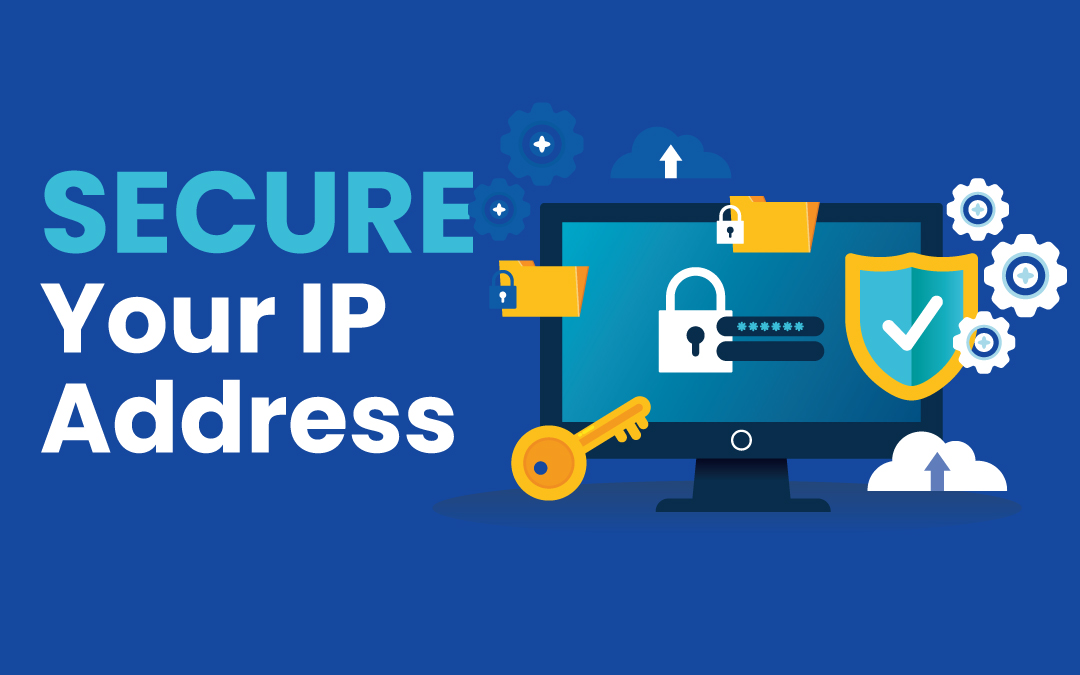
In today's interconnected world, an IP address is like your digital home address. It's essential for online communication but also makes you susceptible to various cyber threats if not properly secured. Securing your IP address is crucial to maintaining privacy and protecting yourself from potential attacks. Here is a comprehensive guide on how to secure your IP address, ensuring your online activities remain private and safe.
Understanding IP Addresses
Have you ever wondered "How to lookup my IP address?" If so, let's dive into it. But first, you need to understand what an IP address is all about.
An IP address, or Internet Protocol address, is a unique string of numbers assigned to each device connected to a network. There are two main types: public and private. Public IP addresses are assigned by your Internet Service Provider (ISP) and are used to identify your network on the Internet. Private IP addresses are used within your local network to identify devices.
IP addresses facilitate communication between devices on a network, enabling them to send and receive data. However, their public nature means they can be exposed and potentially exploited if not properly secured.
Risks of Exposed IP Addresses
When your IP address is exposed, it opens the door to several risks:
- Hacking: Cybercriminals can use your IP address to gain unauthorized access to your network and devices.
- Tracking: Advertisers and malicious entities can track your online activities, compromising your privacy.
- DDoS Attacks: Distributed Denial of Service (DDoS) attacks can overwhelm your network, rendering it unusable.
For example, a 2020 report by the FBI highlighted a surge in DDoS attacks targeting personal and corporate networks, emphasizing the need for robust IP address security.

Basic Security Measures
Start with these fundamental steps to secure your IP address:
- Update Software and Devices: Regularly update your operating systems, browsers, and firmware to protect against vulnerabilities.
- Strong, Unique Passwords: Use complex passwords for all devices and change them periodically.
- Enable Firewall Protection: Ensure your devices have firewall protection enabled to block unauthorized access.
Using a Virtual Private Network (VPN)
A free VPN is a powerful tool for securing your IP address. It encrypts your internet connection and routes it through a remote server, masking your actual IP address. It hides your real IP address, making it difficult for hackers and trackers to identify your location and activities. It also provides a layer of encryption, enhancing your overall security.
Employing a Proxy Server
A proxy server acts as an intermediary between your device and the internet, masking your IP address.
- Advantages: Proxy servers can help you access geo-restricted content and improve privacy by hiding your IP address.
- Disadvantages: Unlike VPNs, proxy servers often lack robust encryption, making them less secure.
Proxies are useful for specific tasks like web browsing and accessing restricted sites, but for comprehensive security, a VPN is generally better.
Configuring Your Router
Securing your home network is essential for protecting your IP address:
- Change Default IP Address: Access your router settings and change the default IP address to a less common one, making it harder for attackers to guess.
- Enable WPA3 Encryption: Use the latest Wi-Fi encryption standard, WPA3, to secure your wireless network.
- Disable Remote Management: Turn off remote management features to prevent unauthorized access to your router settings.
Educating Yourself on Online Privacy
Staying informed about online privacy is crucial for maintaining IP address security. Follow blogs, subscribe to cybersecurity newsletters, and participate in forums to keep up with the latest threats and security practices. Then, implement best practices like using multi-factor authentication, avoiding suspicious links, and regularly updating passwords.
Conclusion
Securing your IP address is vital for protecting your online privacy and preventing cyber threats. By implementing the measures discussed in this article, you can significantly enhance your IP address security. Remember, online security is an ongoing process that requires vigilance and regular updates.
Share this post
Leave a comment
All comments are moderated. Spammy and bot submitted comments are deleted. Please submit the comments that are helpful to others, and we'll approve your comments. A comment that includes outbound link will only be approved if the content is relevant to the topic, and has some value to our readers.

Comments (0)
No comment